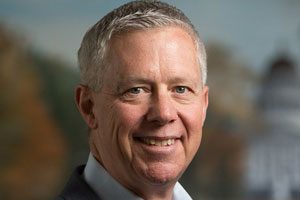
Proponents of an $11 billion statewide property tax increase re-filed their ballot initiative this week, claiming “notable improvements to implementation dates, expansive new small business tax relief, clarified education financing and stronger zoning language to ensure large corporations cannot avoid reassessment.”
Breaking down the changes, one can’t help but conclude that proponents would not have thrown away $3.5 million in donors’ money spent to qualify the original measure to add a very minor change in the definition of business property or – even more laughably – to give a handful of property owners a pass on the tax increase.
The most likely reason for this expensive do-over is incompetent drafting that left some school districts out of the money, and language that may have required a retroactive tax increase.
Given the slapdash writing and slapstick marketing of this ballot measure, I still have some questions for proponents about how or whether this measure will stumble to the November 2020 ballot:
- Will you withdraw the flawed measure, even if you don’t qualify the replacement?
You spent $3.5 million to draft a measure that’s now lining your canary cage. It will cost millions more to gather the even higher number of signatures you now must collect. Will you keep the discredited but qualified measure in your back pocket in case you fail in round two? Is a lousy but lucrative measure better than none at all?
- Will you go back to the same donors to re-qualify your measure?
You raised and spent millions on an “oops” initiative, including $1.5 million from government unions and millions from foundations and social justice organizations. Pfft! Not to mention flushing out to sea contributions from dozens of small donors. Are they good to go for another few mil to paint over your boo-boo? Have you promised them you’ve got it right this time?
- What about the rival tax measure?
You’re not the only player at the tax table. An erstwhile ally, the California School Boards Association, is marketing a similarly massive tax increase for voter consideration in 2020, an $11 billion hike in personal and corporate income taxes. Do you believe voters’ appetite for tax increases is that voracious, or will you gather in a smoke-free room to hammer out a compromise?
- Are you convinced we actually need a tax increase?
Governor Newsom just signed a state budget with a surplus north of $20 billion. And it’s still growing! School funding per pupil has increased 70 percent since the depths of the recession. Governor Newsom has even thrown in extra funds this year to staunch the vexatious cost of pensions. With money raining down on government treasuries, can you with a straight face claim you need even more?
- More to the point, are voters convinced we need a tax increase?
Some polls show a bare majority of Californians supportive; others reveal the measure unable to reach majority support. This is hardly encouraging with the prospect of a well-funded opposition campaign in the wings. But more daunting is the dry run in Los Angeles last June. A mini-split roll property tax proposal by the Los Angeles Unified School District could not even muster a simple majority support in a famously liberal electorate. The omens are not propitious!
My advice – embrace your error! Everyone makes mistakes. Use this opportunity to take the offramp away from a bruising and unwinnable ballot fight.
Loren Kaye is president of the California Foundation for Commerce and Education.
This article first appeared in Fox and Hounds Daily.

